Kamut Vs Wheat What’s The Difference? Fork & Spoon Kitchen
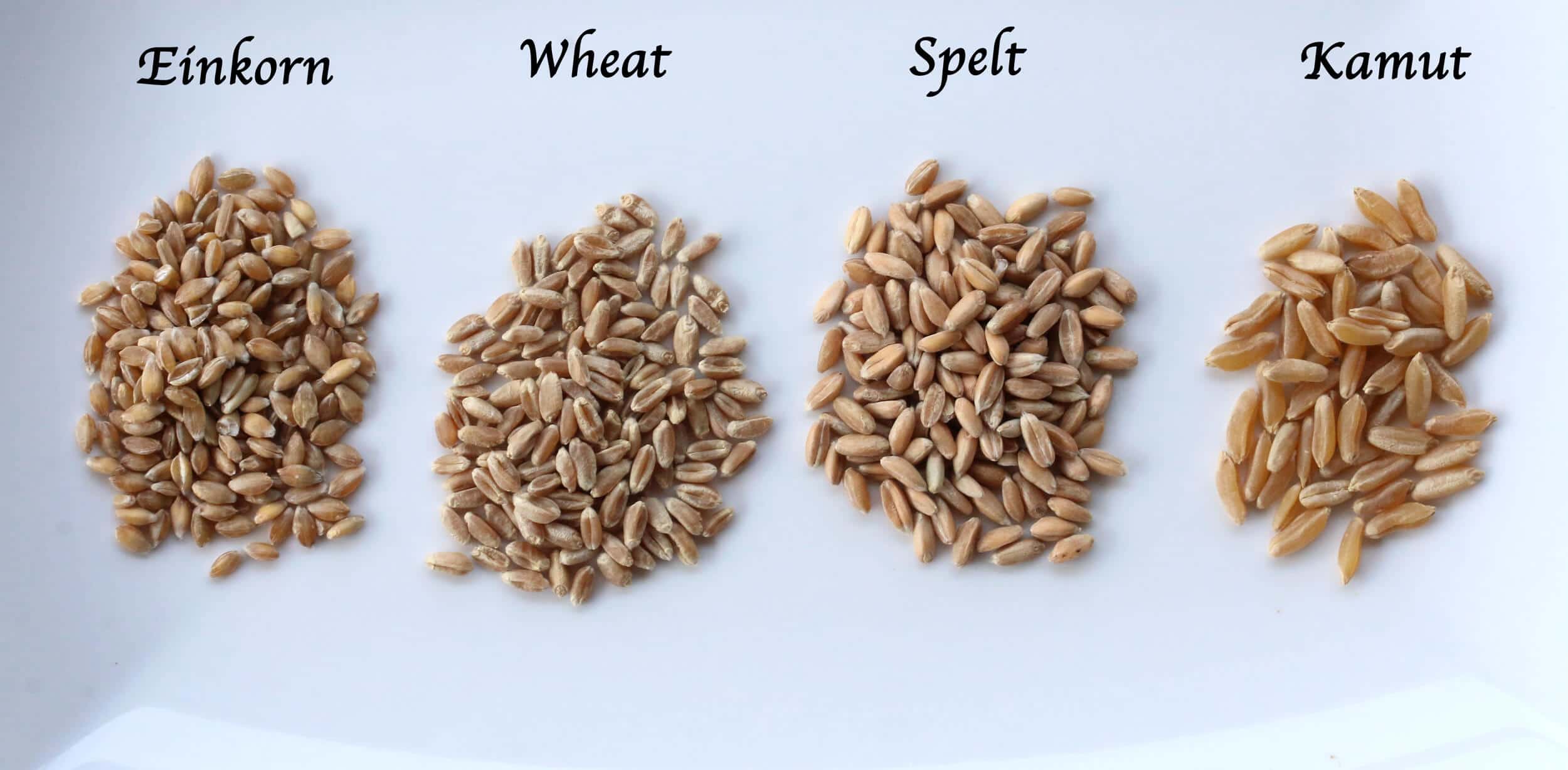
Greek Einkorn (Wheat Berry) Salad The Daring Gourmet
Preheat your oven to 500F for 30 minutes with your baking vessel inside. Flip your dough onto parchment paper, score it, and load it into the hot baking vessel. Bake at 500F for 20 minutes with the lid on. Then, if you're baking in cast iron, slide a baking sheet under the vessels, same shelf, direct contact.

Kamut Vs. Wheat Top healthy foods, Calories in vegetables, Vegetarian
Spelt is indeed different that modern wheat. Both spelt and Kamut are ancient grains grown organically without being hybridized over the years. Modern wheat has been grown and bred with lighter fluffier bread in mind so it has a higher gluten content than spelt or Kamut. The spelt is especially water-soluble and therefore highly "bio-available".
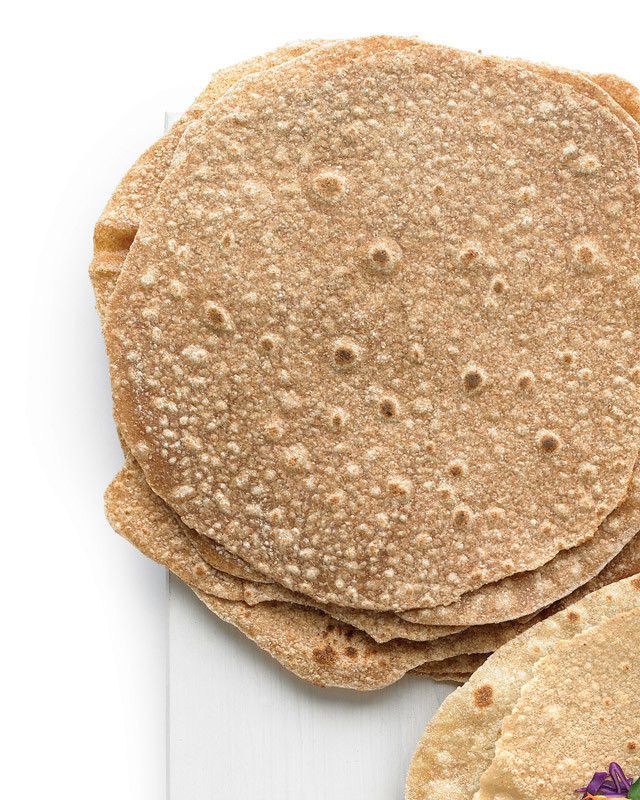
Spelt or Kamut Tortillas Recipe Martha Stewart
It offers a pleasant balance that appeals to a wide range of palates. Whether used in soups, stews, salads, or baked goods, spelt adds a delightful complexity to the overall taste experience. When compared to Kamut, another ancient grain, spelt's flavor is generally considered milder and less pronounced.

Kamut ve Buğday Fark Nedir?
Kamut wheat, also known as Khorasan wheat, is a giant grain packed with protein, essential fatty acids, and vitamins. It boasts a buttery and nutty flavor that distinguishes it from other ancient grains. Kamut wheat is celebrated for being organically grown and having a higher amino acid profile than regular wheat.
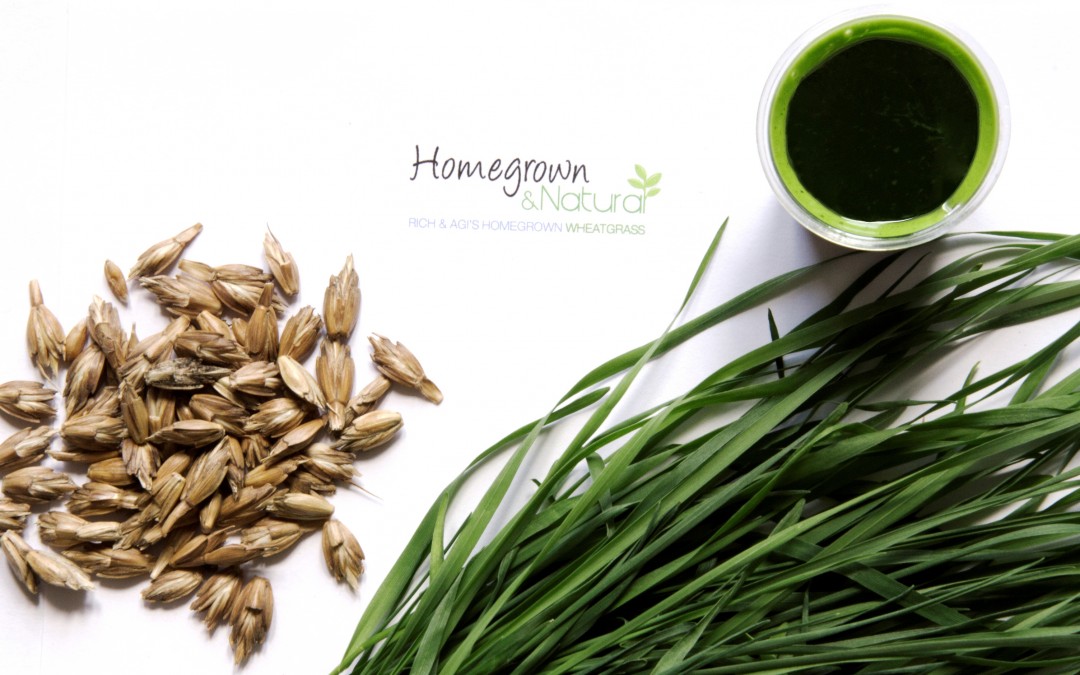
Spelt vs. wheatgrass The Wheatgrass Health Blog Wheatgrass.co.uk
Spelt is a bread wheat in use since Biblical times. Kamut is a comparably old durum wheat and is unusually high in lipids giving it a buttery taste. Both grains are nutritionally superior to common wheat in both protein and trace minerals. Spelt is highly water soluble, which means the body can easily absorb its nutrients.
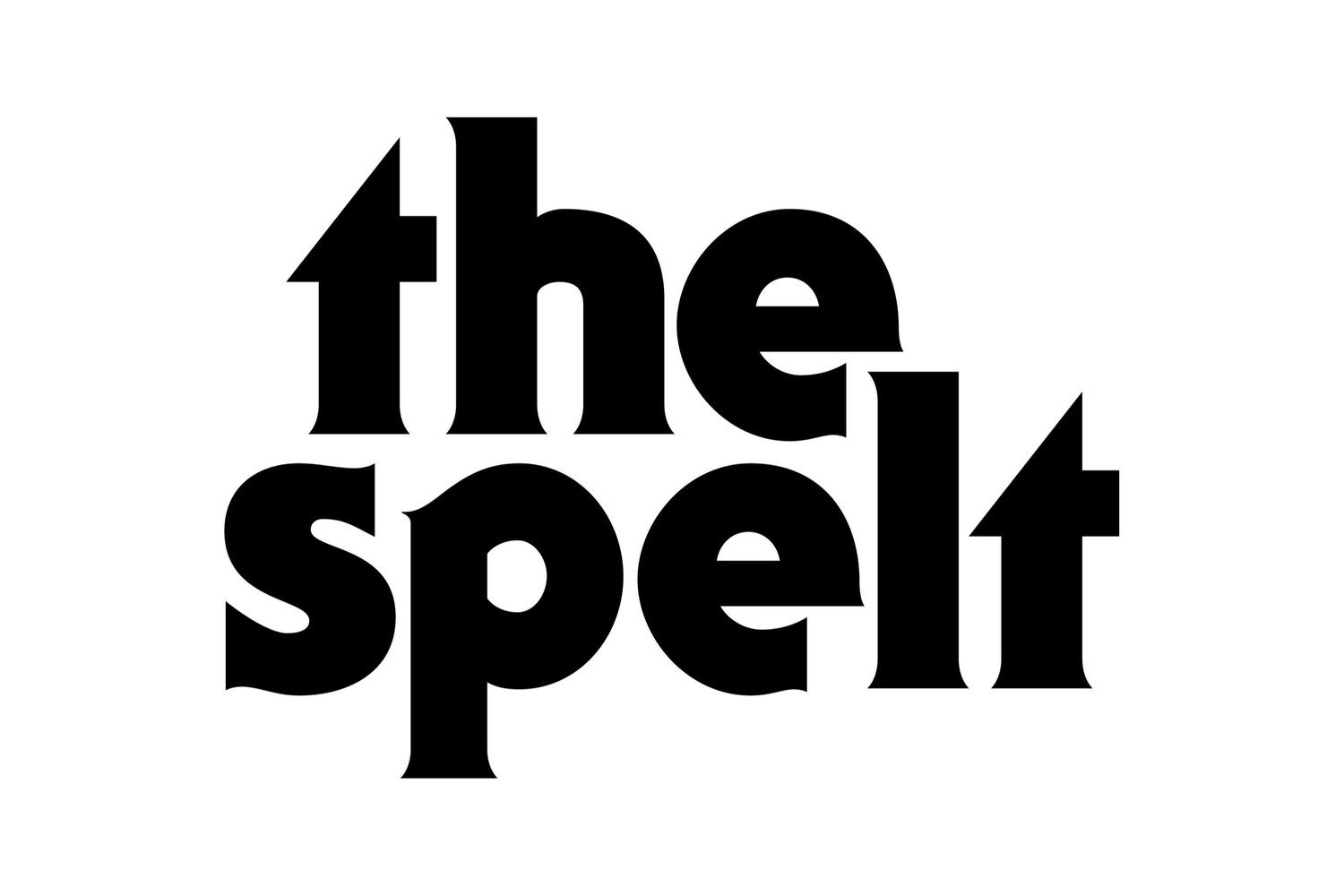
The Spelt
When it comes to nutrition, both spelt and kamut offer a variety of health benefits. They are both high in fiber, protein, and essential vitamins and minerals. Spelt is higher in certain vitamins and minerals than kamut, including thiamin, zinc, and magnesium. However, kamut is higher in protein and some essential fatty acids.
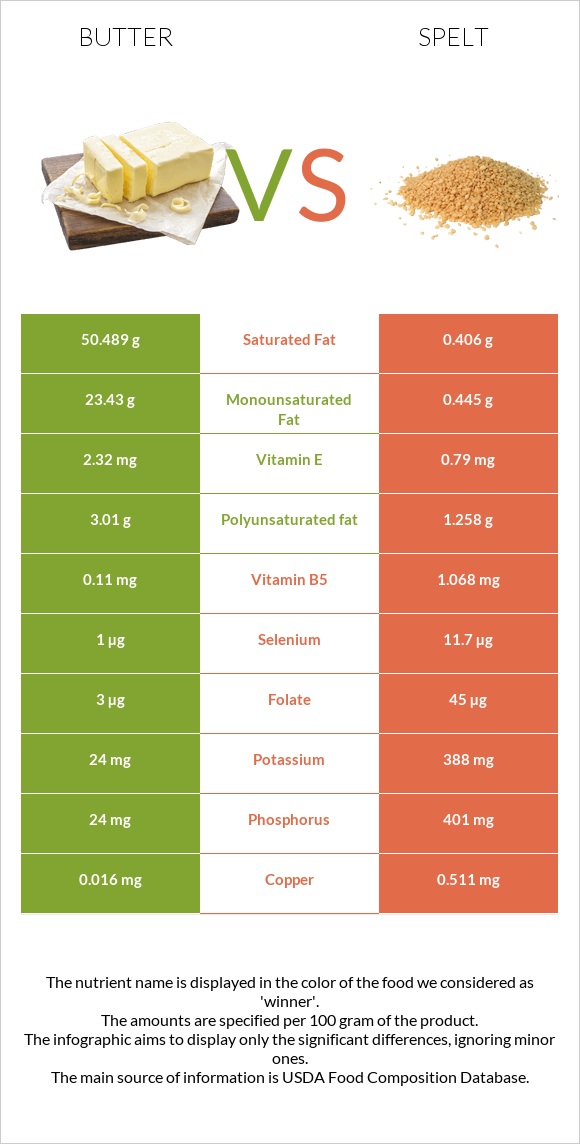
Butter vs. Spelt — InDepth Nutrition Comparison
3. In a large skillet combine the leeks, broth, wine, and zest strip, and bring to a boil. Reduce heat and simmer, covered, until the leeks are soft, 5 to 7 minutes. Drain, remove the zest strip, and add the leeks to the bowl with the Kamut®. Drain the raisins and add them to the bowl along with the orange pieces. 4.

Spelt vs Kamut Which is better? Kitchen Instincts
Daily need coverage for Selenium from Khorasan wheat is 141% higher. Khorasan wheat contains 5 times more Vitamin B1 than Spelt. While Khorasan wheat contains 0.566mg of Vitamin B1, Spelt contains only 0.103mg. Wheat, KAMUT khorasan, uncooked and Spelt, cooked are the varieties used in this article.
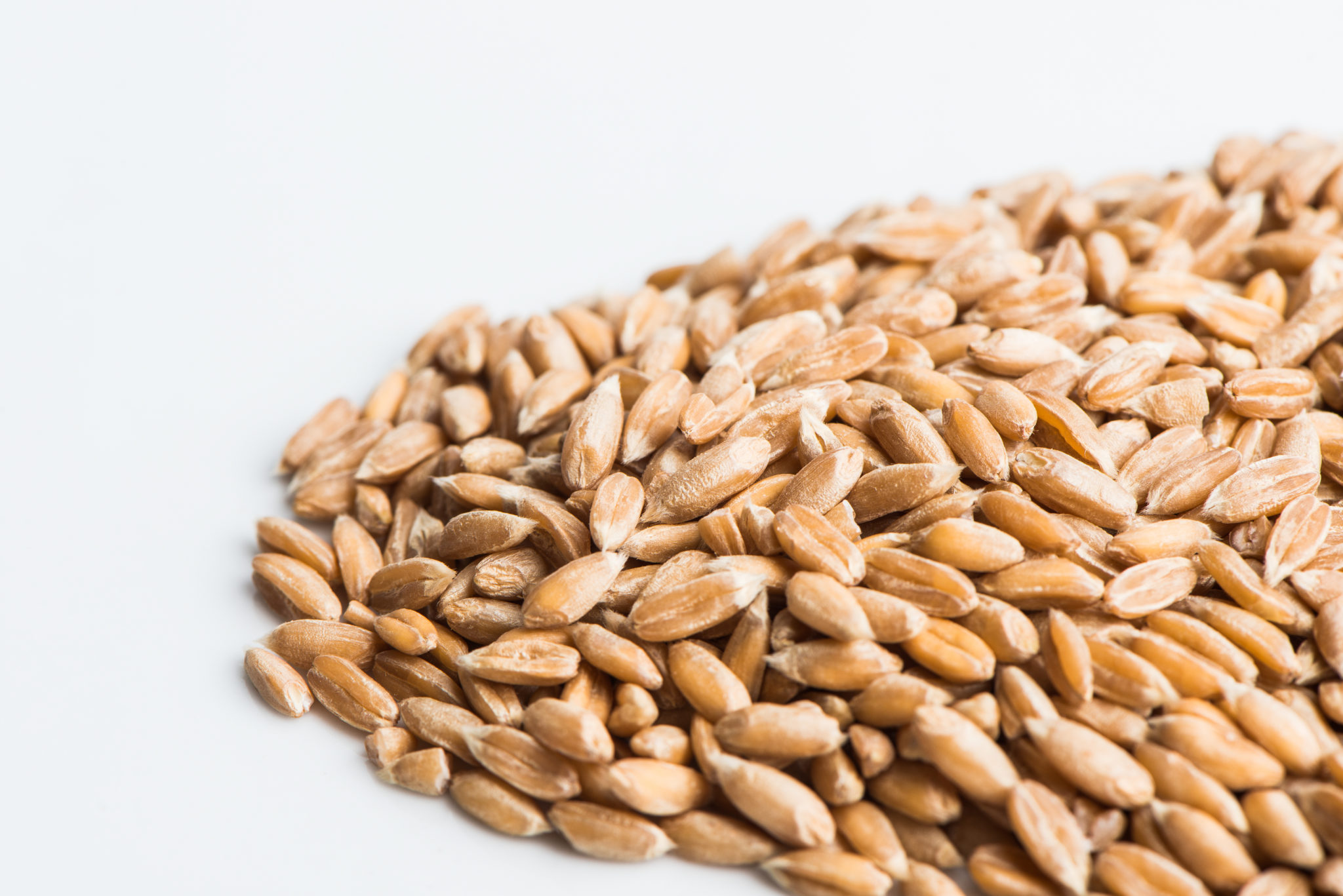
Spelt Mumm's Sprouting Seeds
Kamut is a trademarked name for Khorasan wheat, brought to popular consumption in 1990 by Bob and Mack Quinn, a son and father farmer duo out of Big Sandy, Montana. Aside from the name Khorasan wheat, which comes from the Iranian province of Khorasan where the food was first known to grow, Kamut has also been called King Tut wheat, a name.

Spelt vs Kamut Which is better? Kitchen Instincts
How are Spelt and Khorasan wheat different? Khorasan wheat has more Selenium, Manganese, Vitamin B1, Copper, Phosphorus, Fiber, Iron, Vitamin B3, Zinc, and Magnesium than Spelt. Daily need coverage for Selenium from Khorasan wheat is 141% higher. Spelt, cooked and Wheat, KAMUT khorasan, uncooked are the varieties used in this article.

Back to Basics How to Cook Whole KAMUT®Berries
Kamut. Einkorn. Spelt. Farro. Freekeh. Believe it or not, all these trendy whole grains are just ancient varieties of wheat, which makes their popularity particularly intriguing, given that.

Kamut Vs Wheat What’s The Difference? Food Readme
Kamut, the commercial name for Khorasan wheat, is an ancient variety of durum, with a grain twice the size of modern-day wheat. Flavor: Rich and buttery. Texture effect: Light and tender in small amounts; verging on crumbly in larger quantities. Works best in: Scones, quick breads, and muffins.

Spelt vs. Wheat
Beyond that, Kamut has a much richer and more varied nutritional profile than common wheat and therefore is quite a bit healthier than wheat. Compared to Kamut, modern wheat is higher in calories and carbohydrates, significantly lower in protein and fiber, and has comparatively no micronutrients to boast about.
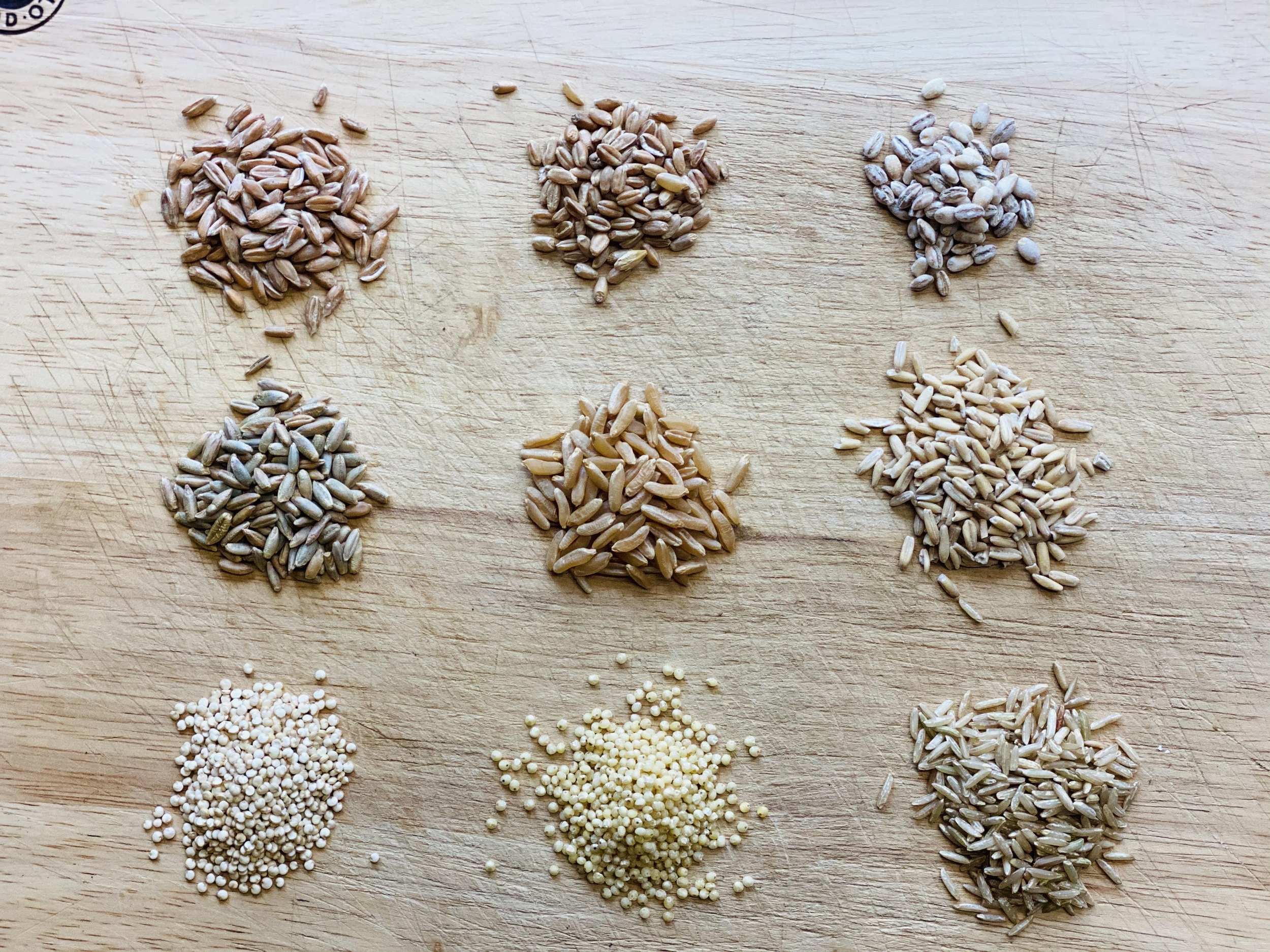
All you need to know about grains — Neantog Farm
Significant differences between Wheat and Spelt. The amount of Selenium, and Zinc in Wheat is higher than in Spelt. Wheat covers your daily Selenium needs 51% more than Spelt. Specific food types used in this comparison are Wheat, KAMUT khorasan, cooked and Spelt, cooked. Infographic
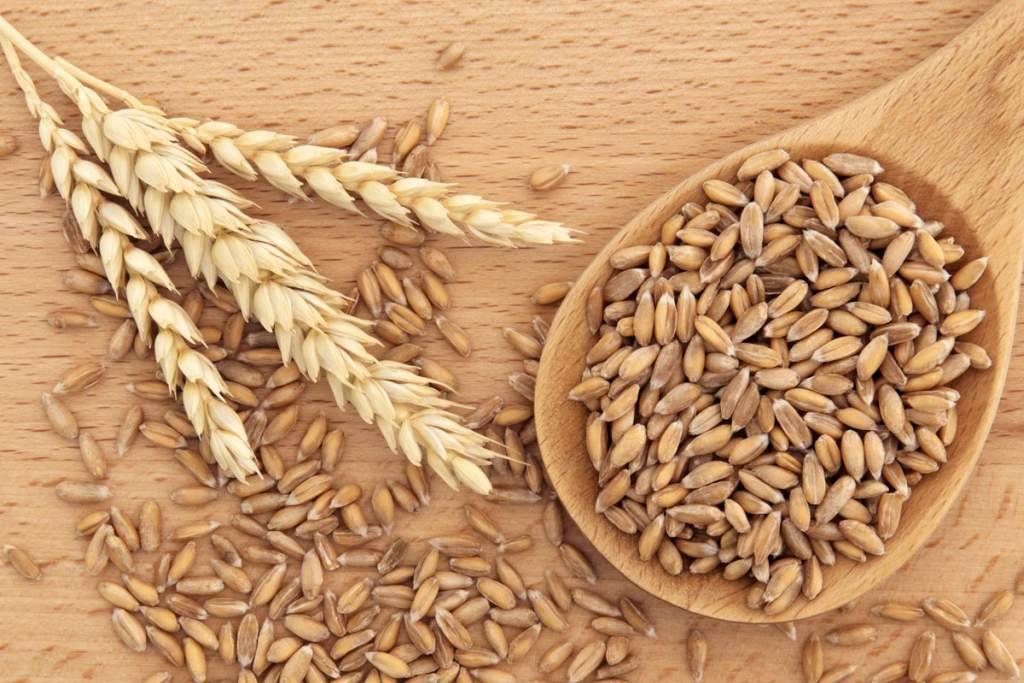
Dinkel Basis für gesundes Essen Wie gesund ist dinkel? Wie
Farro is an Italian word that encompasses three varieties of heirloom grains: einkorn, spelt and emmer wheat. These are referred to respectively as farro piccolo, farro grande and farro medio. So rather than being a single grain, farro is a collection of three grains and the term farro can refer to any of these three grains.
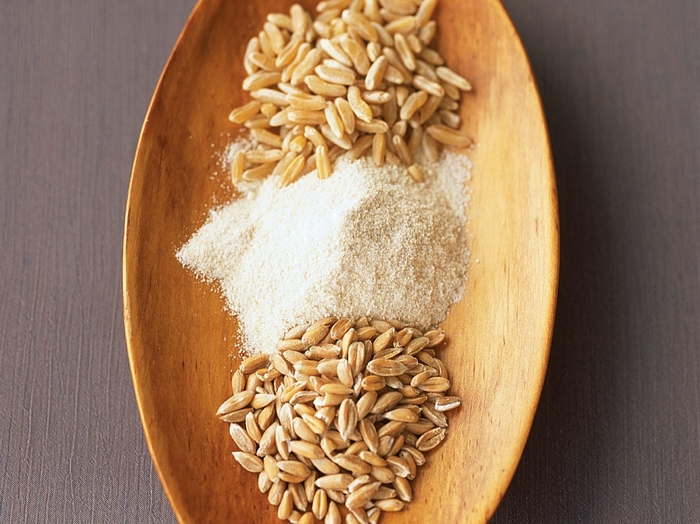
Kamut Vs Wheat What’s The Difference? Fork & Spoon Kitchen
What is the difference between kamut and wheat? Kamut is a type of wheat that contains less gluten and more protein than regular wheat. Kamut also provides 8 of the 9 essential amino acids. It has a low lysine content, so you should combine it with foods rich in lysine, such as eggs or tofu. This article will take a closer look at the.